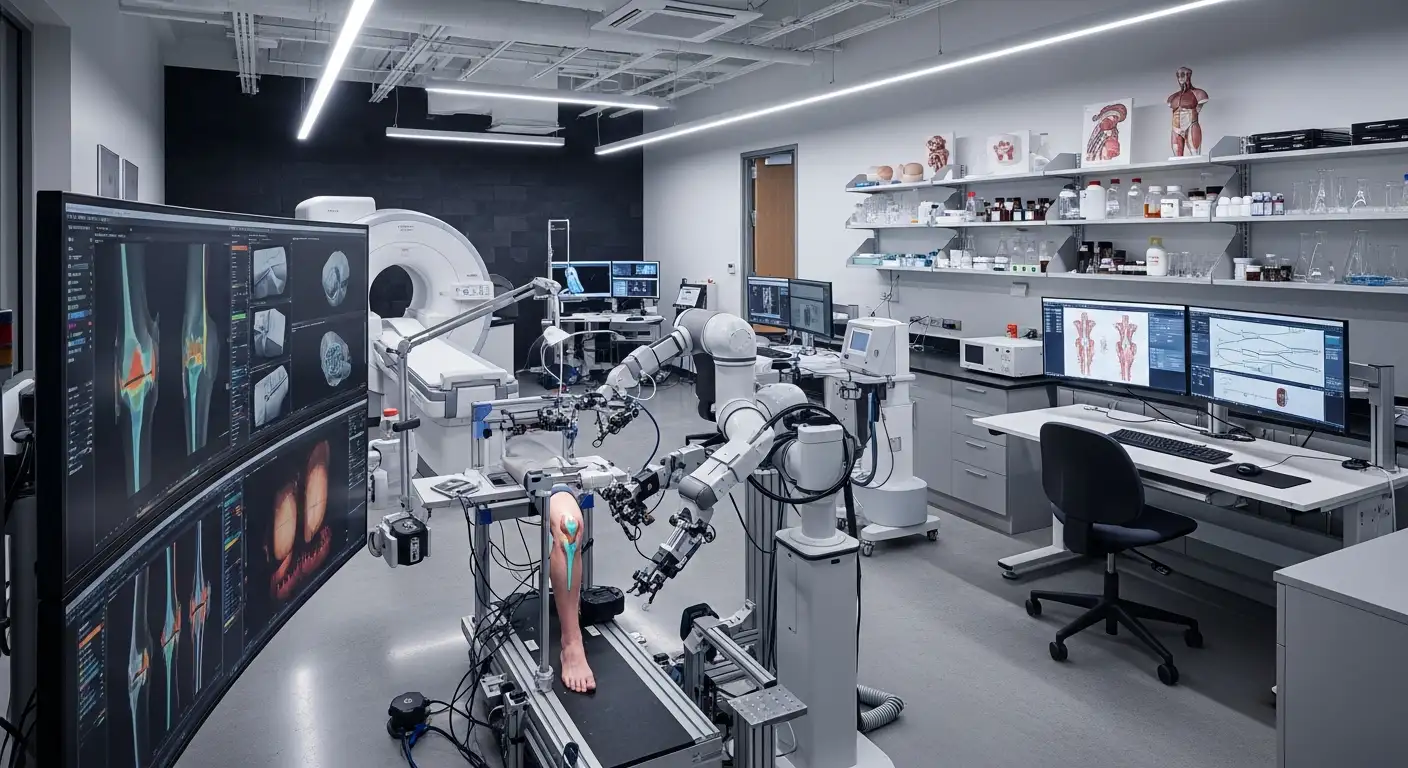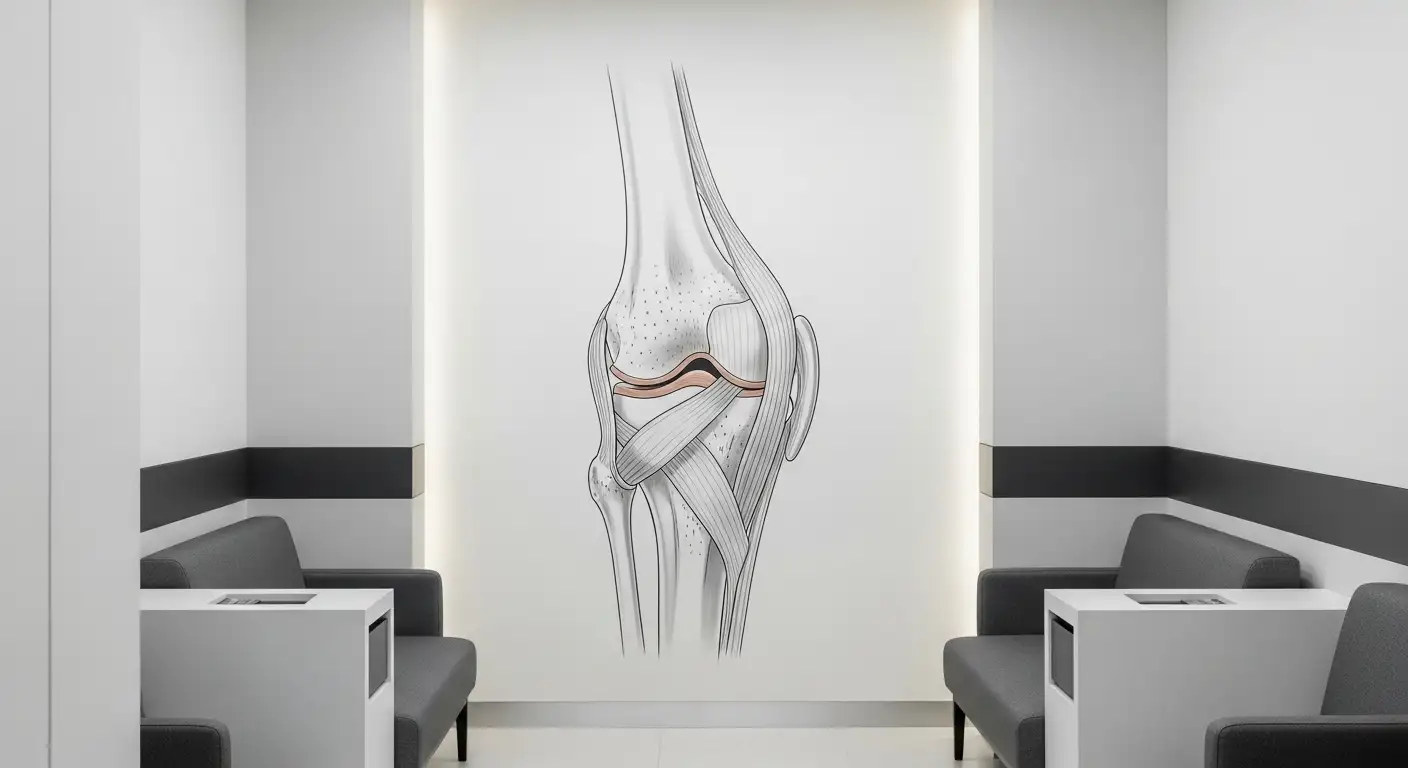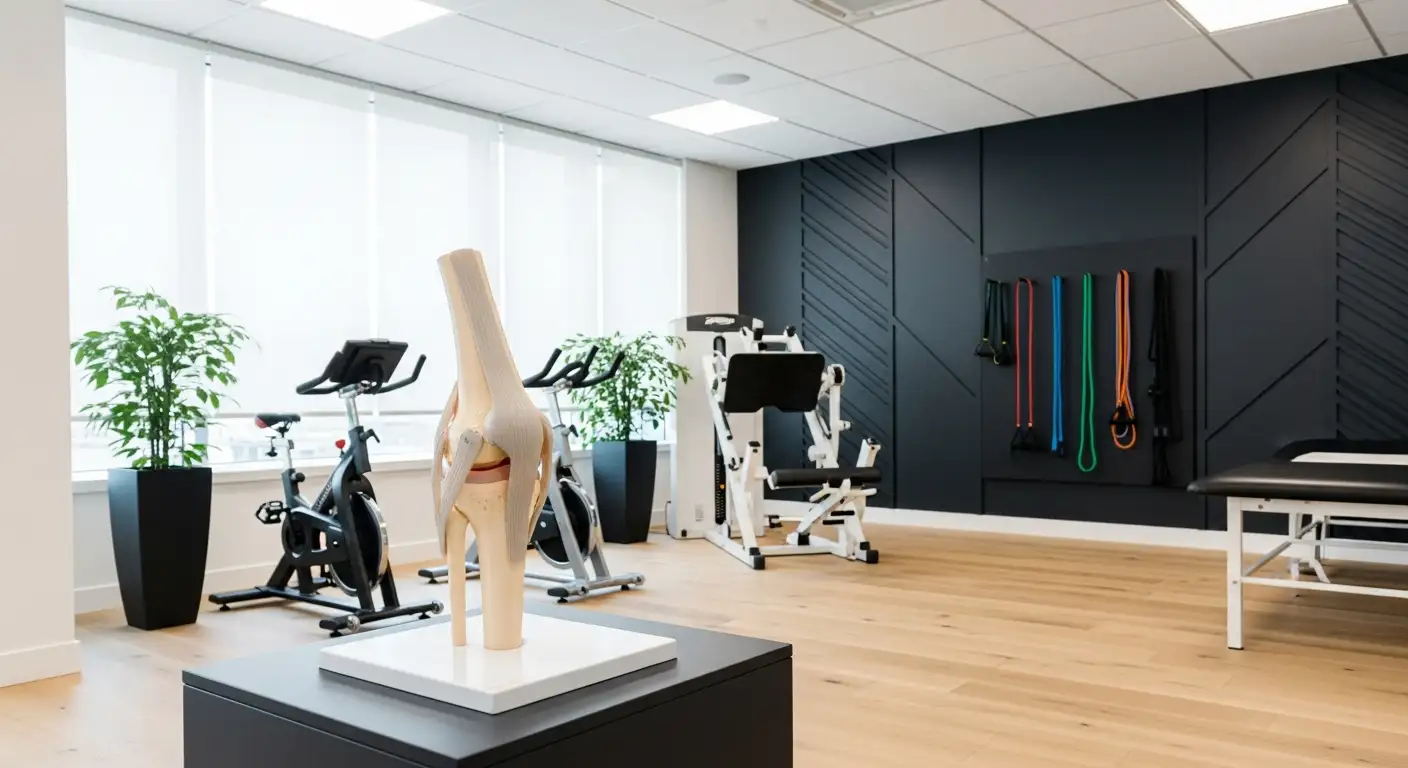Preparing for Knee Surgery
When preparing for knee surgery, it's vital to take into account both emotional and physical aspects. Understanding these elements and taking the appropriate measures can help you face that feeling when knee surgery is tomorrow with confidence.
Emotional Preparation
Undergoing knee surgery can carry with it a myriad of emotions. As per Dr. Stuart MacKenzie, it is essential to acknowledge these emotions and take steps to improve emotional well-being. Top strategies include getting enough rest, consuming healthy foods, preparing questions to ask the surgeon to ease concerns, practicing relaxation techniques like listening to music or deep breathing, and allowing time for emotional recovery post-surgery.
Anxiety is a common emotion before surgery, with many people experiencing symptoms such as a pounding heart, fast pulse, irregular heartbeat, nausea, nervous stomach, shortness of breath, and sleep problems. To cope with pre-surgery anxiety, one can rely on emotional and practical support from friends and family, obtain early information about the procedure, discuss concerns openly, and use distractions like reading or relaxation techniques. Studies have shown that listening to music before surgery can alleviate anxiety by aiding in relaxation and distraction.

Many hospitals offer various forms of support to manage pre-surgery anxiety, including counseling, social work services, and relaxation techniques such as meditation, breathing exercises, and muscle relaxation. While some alternative therapies like massages, acupuncture, homeopathy, aromatherapy, and hypnosis are sometimes available, their effectiveness in relieving anxiety has not been scientifically proven [1].
Physical Preparation
Physical preparation for knee surgery involves more than just the surgical area. It includes general health measures and specific instructions about medication. Sedatives, such as benzodiazepines, are commonly used to help patients sleep and reduce anxiety the night before surgery, as well as in the last two hours before anesthesia. Melatonin is sometimes used for sleep and anxiety, but it's approved only for individuals aged 55 and older and can cause side effects like headaches and stomach pain. It's crucial to inform the doctor if any sedatives were taken before arriving at the hospital.
Patients should also be prepared to discuss their medical history, current medications, and any allergies with their healthcare team. This information will help the team plan for the safest and most effective way to carry out the surgery.
In conclusion, preparing for knee surgery involves both emotional and physical preparation. By taking the time to understand the procedure, managing anxiety, and ensuring optimal physical health, patients can approach their surgery with confidence and ultimately enhance their chances of a successful outcome.
Understanding Knee Surgery Options
When contemplating knee surgery, it's important to understand the available options and potential risks. The most commonly recommended and successful procedure is total knee replacement, but like all surgeries, it can come with potential complications.
Total Knee Replacement
Total knee replacement is often the first option proposed for knee surgery. This procedure has the highest success rate among surgical options for knee arthritis according to Arthritis Health. It involves replacing the damaged knee joint with an artificial implant made of metal and medical-grade plastic called polyethylene. These implants can be attached using bone cement or a cement-free approach that features a porous coating to facilitate bone integration Healthline.
Post-surgery recovery varies, but most people are up and walking within 24 hours with the aid of a walker or crutches and are discharged from the hospital 2-3 days after surgery. Full recovery typically takes around 3 months, although some individuals may require 6 months or more Healthline. One encouraging statistic is that more than 82 percent of total knee replacements are still functioning 25 years later. However, wear and tear can affect performance and lifespan, especially in younger patients with a more active lifestyle Healthline.
Potential Complications
While complication rates for knee surgery are generally low, potential risks do exist. These may include blood clots, infection, or damage to the knee or surrounding tissue. It's important to note that surgeons with more experience in the specific procedure and health facilities conducting high volume joint replacement procedures tend to yield better outcomes Arthritis Health.
Understanding these options and potential risks can help allay apprehensions and set realistic expectations for those who are bracing themselves for 'that feeling when knee surgery is tomorrow'. It's crucial to have a thorough discussion with your healthcare provider to determine the best surgical approach for your unique situation.
Enhancing Surgical Outcomes
Understanding how to prepare for knee surgery and what to expect during the recovery process can significantly influence the surgical outcomes. By taking proactive measures before and after surgery, patients can improve their chances of a successful recovery and return to daily activities more quickly.
Pre-surgery Preparations
Before undergoing knee surgery, several measures can be taken to improve the chances of a successful outcome. Here are some suggestions to consider as you prepare:
- Strengthening Knee-Supporting Muscles: Engage in pre-surgery exercises such as yoga, biking, or swimming to strengthen and condition your body and joints. These exercises can improve muscle strength, endurance, and range of motion, leading to a smoother recovery process.
- Lose Excess Weight: Losing one pound of weight can relieve four pounds of pressure on your knees. This can help ease the pressure on your knees and aid in the recovery process.
- Quit Smoking: Cutting back on substances like tobacco can reduce the risk of developing blood clots and other complications post-surgery [2].
- Prepare Your Home: Arrange for assistance from family and friends to provide support during the recovery period. Having support in place can aid in focusing on healing and ensure necessary help is available [2].
- Pack a Surgery Go-Bag: Pack a bag the day before surgery with all necessary items for check-in, surgery, and recovery. This preparation ensures that you have everything you need for the procedure and subsequent healing process.
Post-surgery Recovery
The recovery process after knee surgery is equally as critical as the preparation. Timelines for recovery can vary significantly. A person undergoing arthroscopic knee surgery can expect to be fully healed in 6 to 8 weeks, while those opting for total knee replacement may need longer for full recovery [3].
During the post-surgery recovery period, it's crucial to follow all instructions provided by your healthcare team. This may include physical therapy exercises, taking prescribed medications, and attending follow-up appointments. Taking these steps can help ensure a successful recovery and reduce the risk of complications.
Remember, the journey to recovery after knee surgery is a marathon, not a sprint. It's important to be patient with your body as it heals and to celebrate every milestone you achieve along the way. With proper preparation and a positive mindset, that feeling when knee surgery is tomorrow can be transformed into a feeling of confidence and readiness for the journey ahead.
Dealing with Pre-surgery Anxiety
Experiencing anxiety before undergoing knee surgery is quite common. That feeling when knee surgery is tomorrow may trigger a range of symptoms and emotional responses. Understanding these symptoms and the strategies to cope with them can make a significant contribution to the overall surgical experience.
Common Symptoms
Anxiety can manifest in various physical symptoms. Some individuals may experience a pounding heart, fast pulse, irregular heartbeat, nausea, nervous stomach, shortness of breath, and sleep problems. These symptoms can be particularly concerning for individuals with a heart condition, as anxiety may exacerbate pain.
In addition, some people may find themselves smoking more frequently due to anxiety. This can lead to increased smoking rates that may heighten the risk of post-surgery complications, particularly related to wound healing.
Coping Strategies
There are numerous strategies to cope with pre-surgery anxiety. These include seeking emotional and practical support from friends and family, obtaining information early on, and discussing concerns with others. Distraction techniques, such as reading or practicing relaxation techniques like slow breathing, can also be beneficial. Studies have shown that listening to music before surgery can help alleviate anxiety by promoting relaxation and distraction [1].
Hospitals may offer various forms of support to manage pre-surgery anxiety, including counseling, social work services, and relaxation techniques such as meditation, breathing exercises, and muscle relaxation. While some hospitals may offer alternative therapies like massages, acupuncture, homeopathy, aromatherapy, and hypnosis, their effectiveness in relieving anxiety has not been scientifically proven [1].
Sedatives, such as benzodiazepines, are commonly used to help patients sleep and reduce anxiety the night before surgery, as well as in the last two hours before anesthesia. Melatonin is sometimes used for sleep and anxiety, but it's approved only for individuals aged 55 and older, with potential side effects like headaches and stomach pain. It's crucial to inform the doctor if any sedatives were taken before arriving at the hospital.
For those who smoke, starting nicotine replacement therapy one to two months before surgery can help reduce these risks [1].
By understanding the common symptoms of pre-surgery anxiety and the various coping strategies, individuals can better manage their feelings and navigate their upcoming surgery with greater confidence.
Importance of Preoperative Education
Preoperative education plays a vital role in preparing patients for knee surgery. It not only equips individuals with crucial information regarding the procedure but also aids in alleviating pre-surgery apprehension.
Benefits of Education
Preoperative education has been recognized for its positive effects on patients awaiting knee surgery. It has been shown to decrease anxiety, improve post-operative pain control, provide more realistic expectations of surgery, and improve understanding of the surgery PubMed Central.
Furthermore, education before surgery could lead to:
- Lower hospital length of stay
- Higher home discharge rates
- Lower readmission rates
- Improved cost
Preoperative education also promotes a sense of social connectedness, fostering participants' independence. Patients with a strong social support system have shorter hospital stays, are more likely to be discharged home, and are more confident and ready to go home on discharge PubMed Central.
In addition, preoperative education can improve patient expectations prior to surgery, leading to improved patient satisfaction after joint replacement and reducing levels of self-reported pain up to 1 year after surgery PubMed Central.
Effectiveness of Education Programs
The effectiveness of preoperative education programs is evident in the improved outcomes for patients undergoing orthopedic surgery. These include:
- Decreased pre- and post-operative anxiety
- Decreased post-operative pain
- Better coping
- Improved length of hospital stay
- Increased discharge to home
- Lower readmission rates
- Improved costs
Timely provided preoperative education is a crucial factor for these positive outcomes PubMed Central.
In conclusion, preoperative education is a valuable tool in enhancing the surgical experience for patients awaiting knee surgery. It plays a significant role in easing that feeling when knee surgery is tomorrow, and contributes to a more confident and informed patient approach towards the surgery.
Psychological Preparation for Surgery
When dealing with the anticipation of knee surgery, psychological preparation plays a crucial role. It can significantly impact postoperative outcomes and determine the patient's overall surgical experience.
Impact on Postoperative Outcomes
Studies have shown that proper psychological preparation prior to surgery can lead to improved postoperative outcomes [4]. These improvements include decreased pre- and post-operative anxiety, better pain management, improved length of hospital stay, higher home discharge rates, lower readmission rates, and ultimately, enhanced cost-effectiveness.
Moreover, preoperative education can align patient expectations with the reality of surgery, leading to improved patient satisfaction after joint replacement. Reducing preoperative anxiety not only enhances postoperative recovery but also heightens patient satisfaction with their surgical experience and reduces self-reported pain up to a year after surgery.
Techniques for Psychological Preparation
One of the most effective techniques for psychological preparation is preoperative education. Properly timed preoperative education can enhance the outcomes for patients undergoing orthopedic surgery, such as knee replacements [4].
Education programs serve as a platform where patients can align their expectations with the realities of surgery. They also provide an opportunity for surgeons to further define their expectations before the elective surgery takes place.
Moreover, preoperative education classes foster a sense of social connectedness while promoting the patient's independence. A strong social support system has been linked to shorter hospital stays, increased likelihood of being discharged home, and higher levels of confidence and readiness to go home on discharge.
In conclusion, dealing with the anticipation of knee surgery requires both physical and psychological preparations. Being mentally prepared can have a significant impact on the postoperative outcomes and overall surgical experience. Therefore, it's crucial to understand and embrace the benefits of psychological preparation techniques such as preoperative education.
References
[1]: https://www.ncbi.nlm.nih.gov/books/NBK279557/
[2]: https://www.healthpartners.com/blog/preparing-for-knee-replacement/
[3]: https://www.arthritis-health.com/blog/8-questions-ask-knee-surgery




